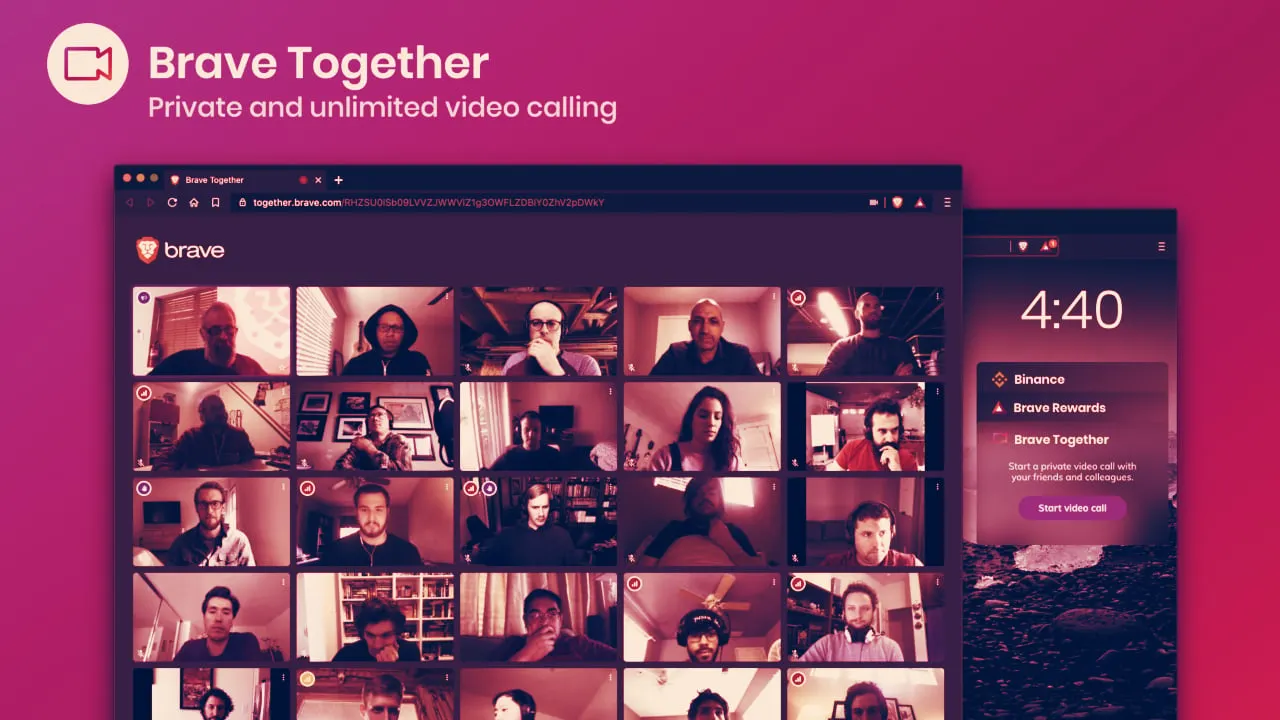In brief
- Brave Browser has announced video calls can be made on the testing version of its browser.
- The service, Brave Together, offers end-to-end encryption with its calls—unlike a number of other video conferencing platforms, such as Zoom.
- Unlimited participants can join the calls, though features are still in development.
Crypto-friendly web browser Brave has announced that private and unlimited video calls can now be made on its platform.
Brave wrote on Twitter that video conferencing is now available on Brave Nightly, the testing and development version of the browser. Known as Brave Together, the platform allows end-to-end encryption for video calls—but is still in testing mode with incomplete features. (The service, for example, only enables encryption for one-on-one calls at the moment.)
Brave Together is based on the open-source, encrypted video chat software Jitsi, the preferred video app of NSA whistleblower Edward Snowden, according to an interview he provided Wired in 2017.
An account is not necessary to use the video conferencing platform but one will need to use the Brave browser.
The coronavirus pandemic has seen an explosion of the use of video conferencing platforms as countries around the world enforce strict lockdowns and people conduct meetings remotely or call family and friends.
One such platform that has seen its popularity surge is Zoom. The application’s stock has doubled since the start of the coronavirus crisis as schools, governments and startups use the platform to communicate.
But concerns have been raised about Zoom’s lack of privacy. Calls are not end-to-end encrypted, and Zoom’s privacy policy gives the company rights to collect personal data—even if they don’t have a Zoom account.
Elon Musk’s rocket company SpaceX even banned its employees from using Zoom.
Brave Browser—which has been praised by crypto luminaries from Tyler Winklesvoss to Binance CEO Changpeng Zhao—provides an alternative to typical web browsers with increased privacy and a crypto rewards program through its native BAT token. The platform has criticized Google’s purported monopoly and aims to be taken seriously as a more ethical option.
Daily Debrief Newsletter
Start every day with the top news stories right now, plus original features, a podcast, videos and more.

